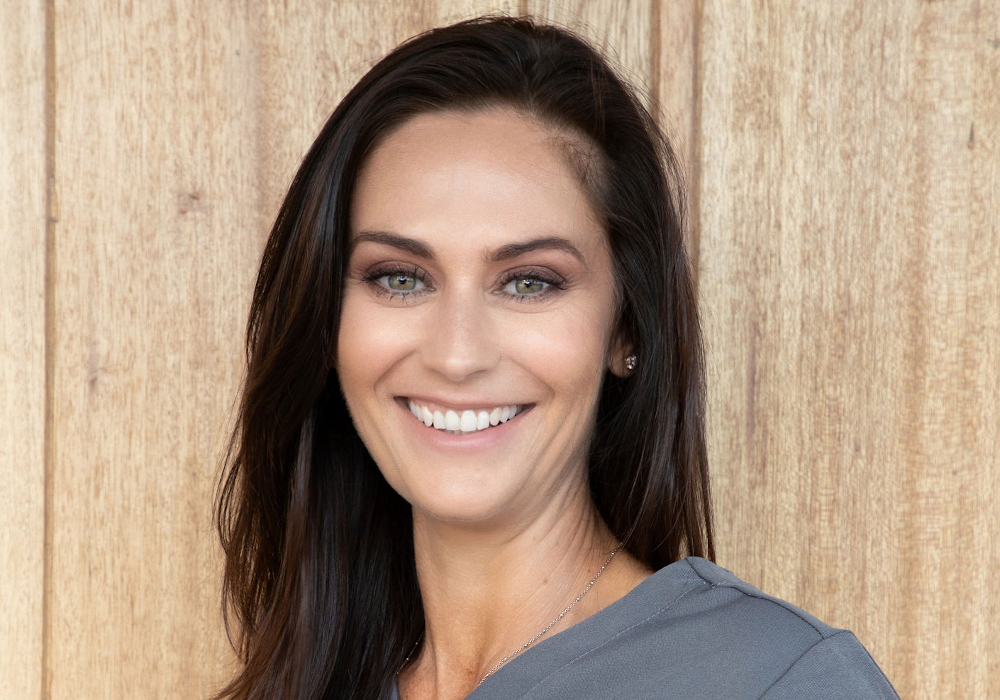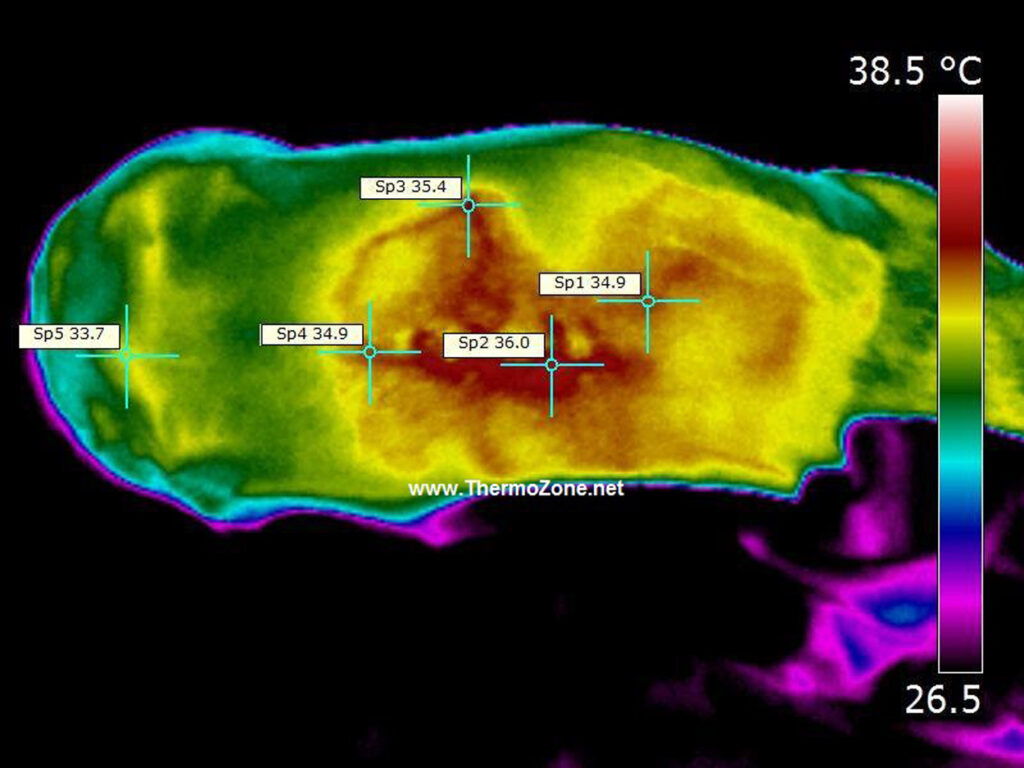Irene Ferreira, Ascendis Animal Health, with Wendy. (Photo supplied)
Pet ownership is on the rise in South Africa and so is spending on pet care. After the hard lockdown in March and April 2020, there was a significant increase in adoptions and purchases of dogs and cats, not to mention reptiles, birds and fish.
While the amount spent on pet care in South Africa annually varies widely, there is no question that it is a multi-billion rand industry and one that shows continued growth. It is estimated that as much as over R7-billion is now spent on dry and wet food purchases alone.
“We are seeing the importance of the pet sector to the retailers in the way they are treating this category, with larger displays, or new store-within-a-store concepts being phased in,” says Neil Meyer, marketing manager of Promeal.
 Neil Meyer, Promeal, with Boss, the office dog. (Photo supplied)
Neil Meyer, Promeal, with Boss, the office dog. (Photo supplied)
“However, what we have seen in the lower economic sector — which is the largest percentage of our population —is that during the pandemic, cash flow was hit hard. As a result, canned pet food did have a decline, with dry food taking its place. In some cases traditional pet food was replaced altogether. What we are seeing now is that as the economy is recovering, so too are sales in the wet and dry pet food categories, which is great for the industry.”
Covid-19 can be seen as a silver lining for our animal companions, but it has also had its drawbacks, including such issues as separation anxiety and some people being unable to afford their pets and having to give them up for adoption. On the up side, people are more likely to adopt an animal because they feel that being at home, they can give it the right amount of attention, or simply because they feel isolated and lonely.
“Considering pet care in the context of the pandemic, we have seen an increase in vet visits and new puppies and kittens during the past year,” says veterinarian Dr Lynsey Bamber of the Blue Hills Veterinary Clinic in Midrand, Gauteng.
“It seems likely that people staying home are more likely to notice issues the pets are experiencing and seek veterinary care. They are also more likely to adopt a new animal as they are home more. The breeders we work with have reported far more enquiries to book animals than before and the welfare organisations also report more foster homes being offered.”
Softening perceptions
Bamber says: “On the other hand, there are obviously people who are struggling financially, so there are some who have moved from buying the more premium dog foods or skipped some preventative care. Sadly, there are always stories of people having to decline surgeries or medicines due to financial constraints. Some preventative pet care has been forgotten or skipped in all the stress of lockdowns, with some puppies and kittens not receiving their primary vaccinations and getting very sick because of it.”
One highlight of the pandemic is the softening of perceptions that animals, like children, should be seen and not heard. While people working from home would cringe if their dogs barked pre-Covid-19 or dread the cat walking over the keyboard during a conference, now any apology in advance of this happening may instead result in the first part of a meeting landing up discussing the treasured furry pet or pets.
“As far as working from home goes, you have to manage work expectations like with children or any member of your family,” says Louise Beevers, founder and director of MediPet Dog and Cat Veterinary Insurance Brokers. “They are part of the family and home, and work has intruded into their space. I say, introduce them to your call or meeting and if all else fails, give them a treat and hope they settle.”
 Louise Beevers, MediPet. (Photo supplied)
Louise Beevers, MediPet. (Photo supplied)
Intrusive behaviour can be prevented if pets are given boundaries. According to animal behaviourist Charlene Kruger of the Manderston Canine Training Academy, just like children, pets can be trained to have good manners.
“There needs to be space and boundaries because there is a time and place for everything,” says Kruger. “Put a bed in the corner of the office or home office and train your pet around the times they can intrude and when it is time for them to be discreet.
“Even though we are in lockdown it is very important not to neglect training. While we have had an increase in the number of behavioural telephonic queries, training at a good training school should continue at an open air venue with the right protocols in place.”
Companionship
Dog trainer Andrea Paine agrees. She says: “In general we find people bring their puppies for training and get them through intermediate levels and then they disappear, thinking that is enough. Six weeks is not enough and they should persist and look at taking their dogs to an advanced level, not to mention that dogs seem to really enjoy these outings and remain well socialised.”
According to Meyer, pets have always been central to people’s busy lives, however with the pandemic pets have taken on a more important companionship role in single homes and in families, becoming even more central to life in a family environment.
“We have definitely seen the relationships between pets and their owners improve,” says Irene Ferreira, brand and technical support manager for Ascendis Animal Health.
“As people are forced to spend more time at home with less socialisation with friends and family, we see a definite increase in interaction between pets and pet guardians. They also seem to take a bigger interest in understanding and supporting pets with medical problems.
“Many behaviours that are problematic for owners are in fact normal behaviours. Pet guardians need to be educated on basic pet behaviours and understand when medication is appropriate. They need to realise when they are placing unrealistic expectations on their pets. Humanisation causes problems and owners should avoid ascribing human traits such as spite or naughtiness to their pet’s behaviour. Patience and understanding are of the utmost importance.”
Anxiety issues
A particular problem being seen now is an increase in stress and anxiety-related issues with the different degrees of lockdown. As people go back to the office and children return to school, empty houses have led to the very real problem of separation anxiety. Dogs and cats are sentient beings and do suffer from stress issues.
“When the first lockdown ended, we saw a big increase in mental disorders, anxiety and eating disorders,” says Beevers.
“We had more claims than we had seen in pet mental care and related claims. When we had the first lockdown, there was no structure. Lines were blurred because we could not leave our homes. Our pets became reliant upon us and we needed the support they gave and bonds became stronger.
“Then when we were allowed to go out for two hours, we recorded more dog bites and fights as dogs became overprotective. Then we went back to the new normal and from giving them our all, went back to what we were giving them before.”
Ascendis Animal Health is the supplier of CalmEze Plus, a medication to help pets overcome stress during such events as thunderstorms and fireworks, and it’s now playing a role in addressing these new anxiety issues. Ferreira says it is important to understand the benefits and negatives of supplements and medications before using them.
“Not all supplements and medications are made equal,” says Ferreira. “In general, your veterinarian or pet behaviourist is best positioned to understand what medication to use. CalmEze Plus is a safe treatment for both short-term and long-term use for the treatment of stress and anxiety-related conditions in cats and dogs and can be used in young, adult and senior pets.
 Thermal imaging of a Dachshund with a spinal injury. (Photo: ThermoZone)
Thermal imaging of a Dachshund with a spinal injury. (Photo: ThermoZone)
“We have seen an increase in stress- and anxiety-related behavioural problems as a result of the fluctuating routines within the household. With pets consistency is crucial, and Covid-19 restrictions unfortunately cause uncertainty.”
Beevers and Kruger both mention seeing an increase in obesity. Meyer says they are seeing the trend of pets not just being fed in the morning or evening, but treated throughout the day as their minders eat breakfast, lunch and dinner and give their charges treats.
This underlines the importance of exercise, which is good for pets and their humans alike. Fortunately South Africa has many dog-friendly parks and open-air training centres.
Educated consumers
Diet is also important. Meyer describes a sector of the market as “functional feeders” — those who buy what is the most cost-effective and trust that suppliers are providing the nutrients required for the pet in the food.
“On the other hand there are more educated consumers who are looking for products that provide more benefits over and above just average. The main things we are picking up are the meat and protein content, the ‘naturalness’ of the product or just more information about what is in pet food. We have seen this in the rising sales of Petleys, our premium brand, which has added meat, is vet recommended and has earned consumer trust with a home tester score of 99% and 10/10 in our independent taste panel studies.
“There is unfortunately a lack of understanding about what goes into pet food, in particular canned food. It is in fact a heavily regulated industry with strict rules and regulations. Consumers must be aware that not all canned food provides the same quality or nutrition, and it is important for consumers to start educating themselves as to the different nutritional or conditional benefits each brand offers.”
Bamber says: “Another trend that we are seeing is a marked increase in pet insurance, which is a welcome relief in the event of an unexpected accident or illness. We are encouraging pet insurance uptake as it makes it possible for pet owners to give the best care possible, without having to cut corners due to financial constraints.”
Beevers agrees, saying that during unstable financial times is when pet insurance is needed the most. “While for many, it is a grudge purchase, but our members appreciate the peace of mind knowing we have them covered.
“Holistic wellness support has become an important part of keeping your pets healthy in the last five years and members now expect plans to cover more than just basic healthcare limited to accidents and illnesses.
“Holistic wellness is often a good alternative to surgery, and can be a vital part of healing after surgery. Our members love our hydrotherapy, physiotherapy, acupuncture, thermography and homeopathy benefits. Veterinary medicine has advanced and owners expect more. In response, our plans have evolved and become more comprehensive as our members demand more options.”
Beevers continues: “Routine care add-on cover has become a requirement when taking out insurance, as owners have become more aware of the importance of preventative care and the need to keep vaccinations up to date, have their pets sterilised and keep parasites under control. MediPet is unique in our immediate cover of so-called common-breed conditions, and these congenital and hereditary conditions keep our claims team busy!”
The bottom line is that South Africans love their furry companions, consider them important members of their family and of benefit to their family’s wellbeing. When the research has been done on the desired pet for a particular environment, there is the likelihood of many happy years being spent together. — Rebecca Haynes